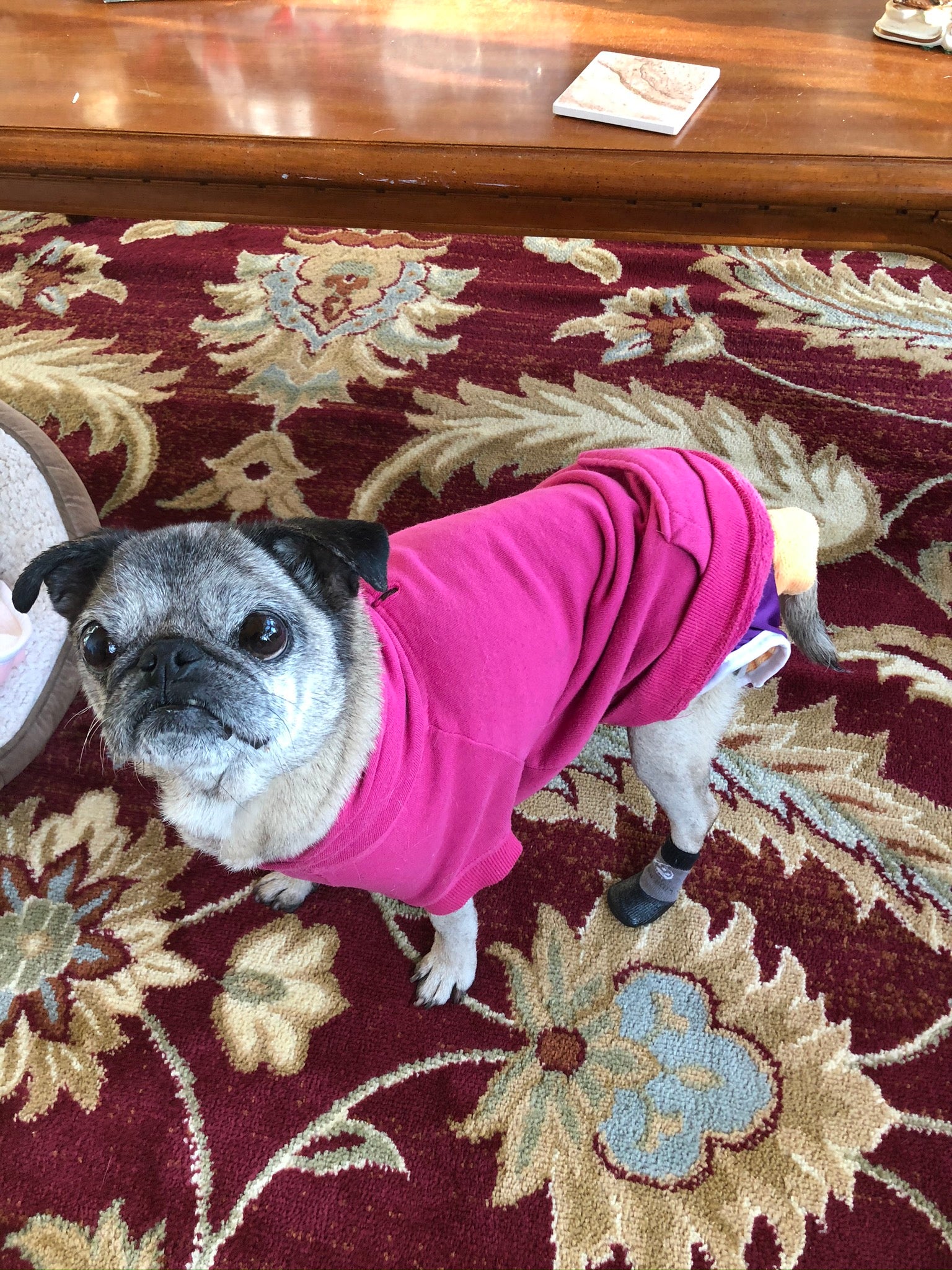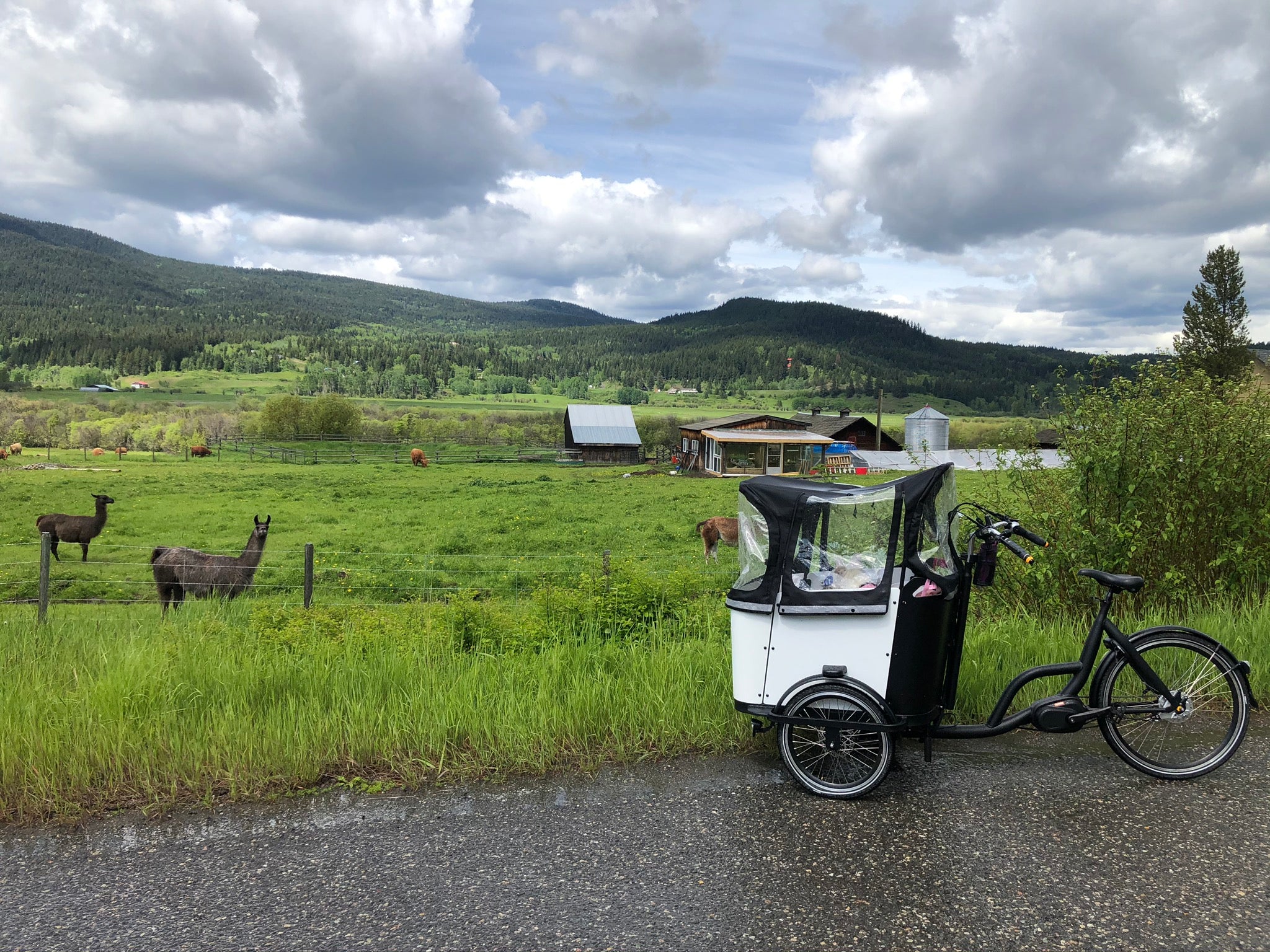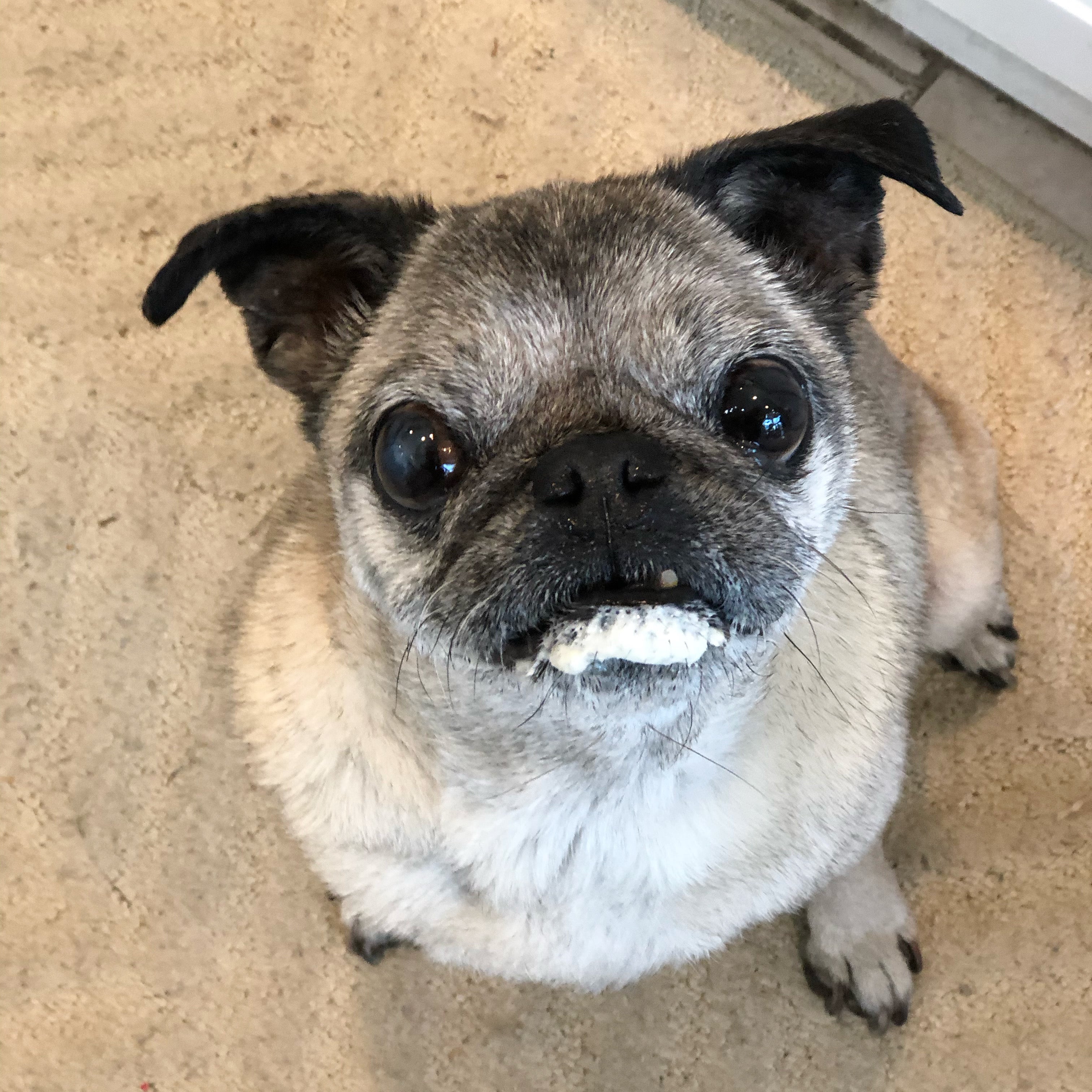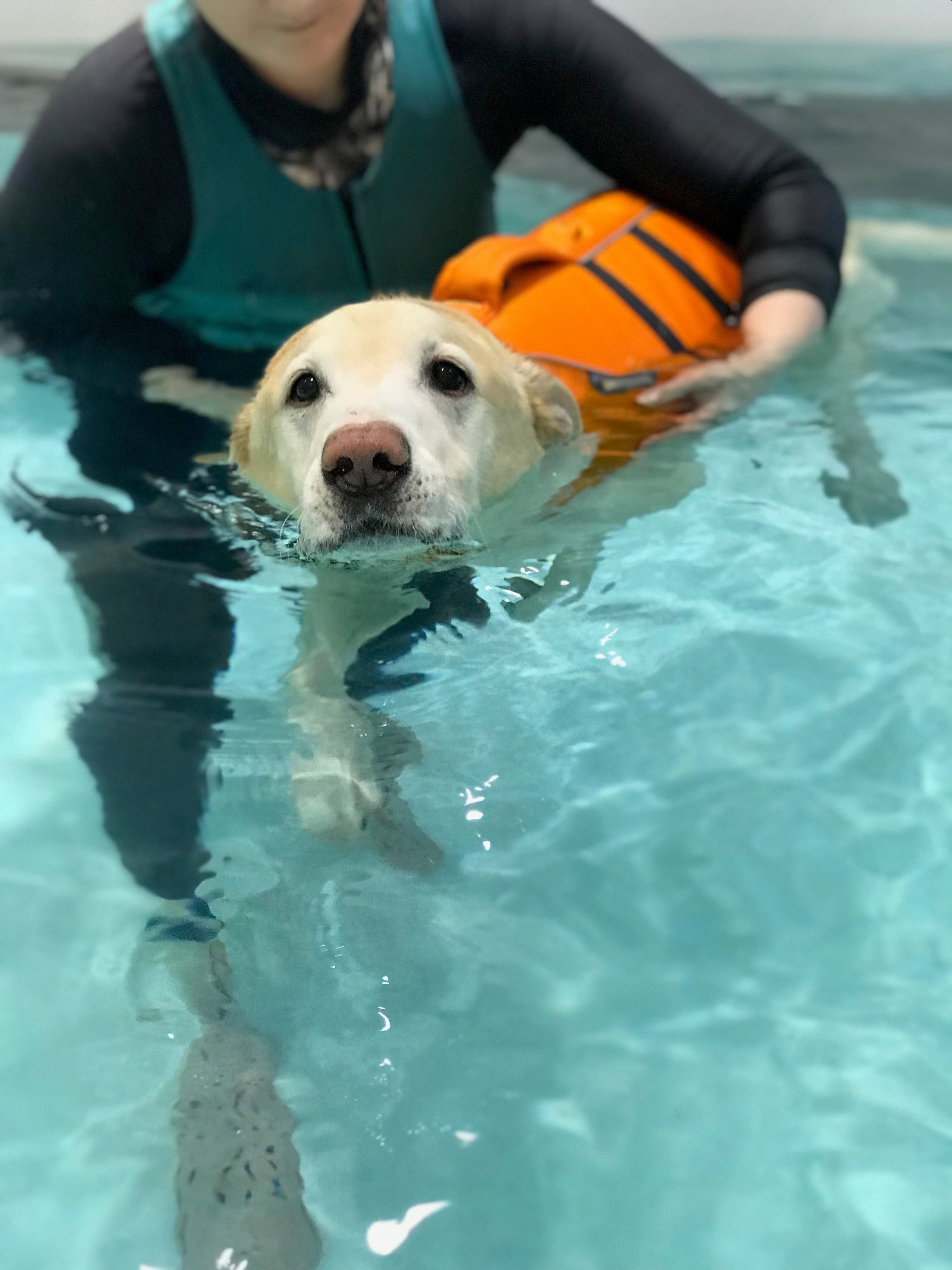
Is it Normal for Senior Dogs to Get Skinny?
For anyone who has a senior dog, you are probably already aware that their body changes over time. It is no different than what happens to us as we age. There are several reasons why your senior dog can't seem to keep weight on so let's look at a few common causes of weight loss and some things you can do to help them keep a healthy weight.
Causes of Weight Loss in Senior Dogs
Underlying Conditions
When it comes to senior dogs conditions such as liver disease and kidney disease are notorious for causing weight loss because they typically cause nausea which impacts your dog's appetite. Getting your dog to eat when facing these conditions can be very challenging in part because they usually do not feel like eating, but also because managing these diseases often means managing their diets, and your options for what to feed them become quite limited.
I remember when Lily was struggling with kidney problems how hard it was to find something she would eat that was kidney-friendly. There is often a vicious cycle in that if you get your dog to eat and it makes them feel nauseous, they can associate that feeling with that specific food and refuse to eat it again, limiting your options even more.
Other conditions that can impact appetite include intestinal issues, heart disease, and joint pain among others. One of the things that always shocks me is how quickly your dog's weight loss can appear. It seems sometimes that in a matter of a few days, your dog has gone from a healthy weight to a concerning weight. This is why seeing your veterinarian as soon as possible when your dog is showing symptoms that anything is wrong is so important. This will help you plan a course of action that gives you the best chance at addressing the underlying condition to avoid further problems.

Loss of Muscle Mass
Not every skinny senior dog is struggling with serious health concerns, sometimes weight loss is due to a loss in muscle mass. As our senior dogs age they typically will slow down, because like us, their joints and muscles ache, or they may not have the energy levels they once did. As they adjust to these conditions they often become less active and therefore they stop using their muscles in the same way they used to. This lack of inactivity can lead to muscle wasting and atrophy.
A problem that I see all too often is that when pet parents see that their senior dog can no longer do all the things they used to do, they tend to overcompensate by eliminating a lot of their activity. Something I tell our customers is that just because our dogs can't do as much doesn't mean they can't do it at all - we just need to give them new ways to stay active in a manageable way. If we pull too far back on activities including exercise then how will they maintain muscle strength? Yes, they will inevitably lose some mass, tone, and strength as humans do, but we can find a healthy balance if we can keep them moving.
Keeping them active is also incredibly important for their mental health. They need stimulation just like we do so finding new ways for them to explore and enjoy the world around them is key.
Diet
Just as important as exercise is ensuring that your senior dog is on the right diet. Sometimes we can offset the weight loss caused by age-related conditions by adjusting what they eat. Dietary choices can be impacted by a health condition that requires strict dietary management like kidney disease but we can typically make changes that can help our senior dogs maintain a healthy weight when their usual diet is not doing enough.
Again I bring us back to the human world because it is very common for people to lose muscle mass and weight for the same reasons including being on a diet that is no longer appropriate. If you have made a point of keeping your dog active and he or she is still losing weight I would definitely speak to your veterinarian who will be able to not only look into a possible underlying condition but can also recommend changes to your dog's diet given their overall health status.
Senior dogs like senior people can often benefit from a diet that provides added protein and often times feeding them smaller meals more frequently can help them maintain a healthy weight while accommodating a slower digestive process.
Medication
Another common cause for weight loss in senior dogs can result from specific medication use. The use of a steroid such as prednisone and prednisolone can be prescribed for aging dogs facing joint and muscle pain or spinal issues as it is a strong anti-inflammatory. Steroids can also be prescribed as part of the treatment of cancer, immune-mediated diseases such as inflammatory bowel disease, skin conditions such as allergies, and more. While under the right conditions, steroids can have dramatic results they can also lead to muscle loss.
Dental Disease
If your dog is showing disinterest in eating it might be due to dental problems. If you have ever had an infected tooth you will understand the pain associated with chewing and this may be enough of a deterrent to your dog to make them less enthusiastic come meal time.

With Senior Dogs You Need to Get Creative
So now that you know some of the common causes for why your senior dog is getting skinny, let's talk about ways that you can help keep them at an ideal weight.
Assistive Devices
If your senior dog is unable to handle long walks or strenuous exercise then it is time to adjust your strategy. You don't need to stop being active, you just need to come up with new ways to keep your dog moving and ensure they stay mentally stimulated. There are a range of products designed to help keep your dog moving, many here on Dog Quality, but some of my favorites include dog strollers, cargo bikes, and bike trailers.
With dog strollers, your dog can walk when able and rest when needed. And when using a bicycle whether that is a cargo bike that lets your dog ride up front or a bike trailer that you tow it is a great way to get out of the house to take in the sights and smells. It can also get you and your dog somewhere that you can both explore that might be a bit too far to walk. Then you park your bike and take your dog out for a short walk. Using short walks and breaks is a great way to keep your dog exercising in a manageable way.
Another great option for keeping your dog active is to use a dog wheelchair, Wheelchairs are not just for dogs that are paralyzed, dogs that can still walk can use the cart to help stabilize them allowing them to keep walking on all fours but with the support they need to keep moving.
And if your dog is having trouble staying active indoors because you have hardwood, tile, and laminate floors that create slipping hazards, something as simple as non-slip dog socks can be a game changer.
Exercising your dog can be done in a manageable way and leads to a long list of benefits such as preserving their muscle tone, maintaining cardiovascular health, improving circulation, stimulating their appetite, and keeping them mentally active.

Explore New Food Options
Every year pet food manufacturers are coming out with healthier more targeted food choices to meet the growing demand from pet parents for better nutrition. We now can choose from a long list of kibble from senior-specific to condition-specific options and everything in between. There are now several fresh food options available, some can even be delivered to your door and there are various raw food options.
If you are looking to adjust your dog's diet to help them gain and stabilize their weight I really do think speaking to your veterinarian is a great idea because they often have other patients who have tried the food you are considering and you can learn from those experiences. Your vet will also have your dog's health status and medical history to tap into.
If you are unable to find a suitable off-the-shelf food, another option is to contact a pet nutritionist who can work with your veterinarian to create recipes that you can make at home. These recipes can be tailored to your dog's specific needs taking into consideration any dietary requirements and medical conditions they may have. This is my favorite option and something I did for Lily when I was trying to find foods she would and could eat when her kidneys were very compromised.
Even treats can help if you choose wisely. When I was managing Lily's diet there was only one kidney-friendly treat that I could find at the time and it was so bland she refused to eat it. I spoke to my vet and he recommended that I give her pieces of apples, carrots, green beans, and blueberries as treats instead. All of these were safe to give given her kidney problems and she enjoyed them all.
In fact, this experience is why I decided to launch our line of freeze-dried fruit and vegetable dog treats called Nibbles. They are literally just fruit and vegetable so they are appropriate for dogs with dietary restrictions and since they are freeze-dried it means you can bring them anywhere. The four varieties are the same as what I gave Lily - apples, carrots, green beans, and blueberries.

Alternative Therapies
Since many times the reason our senior dogs stop being active is due to muscle or joint pain, one of the ways you can help them stay active is to explore alternative treatment options. Therapies such as laser treatment, hydrotherapy, massage, and acupuncture can help reduce pain, and inflammation, and loosen stiff joints and muscles. They are non-invasive and most dogs are quite receptive to these options and they can help to keep your senior dog more active.
The more we help our dogs heal their bodies the better chance we have of keeping them healthy and active. So if your dog is showing signs of weight loss know that you have a lot of different options available to help them find their way back to an ideal weight.

Photo by HappyAd, CC BY-SA 4.0, via Wikimedia Commons
Ann-Marie Fleming is the Founder & CEO of Dog Quality, a provider of innovative assistive products focused on improving the quality of life for older dogs and the families that care for them.

